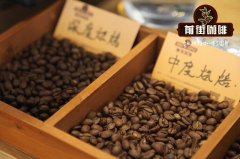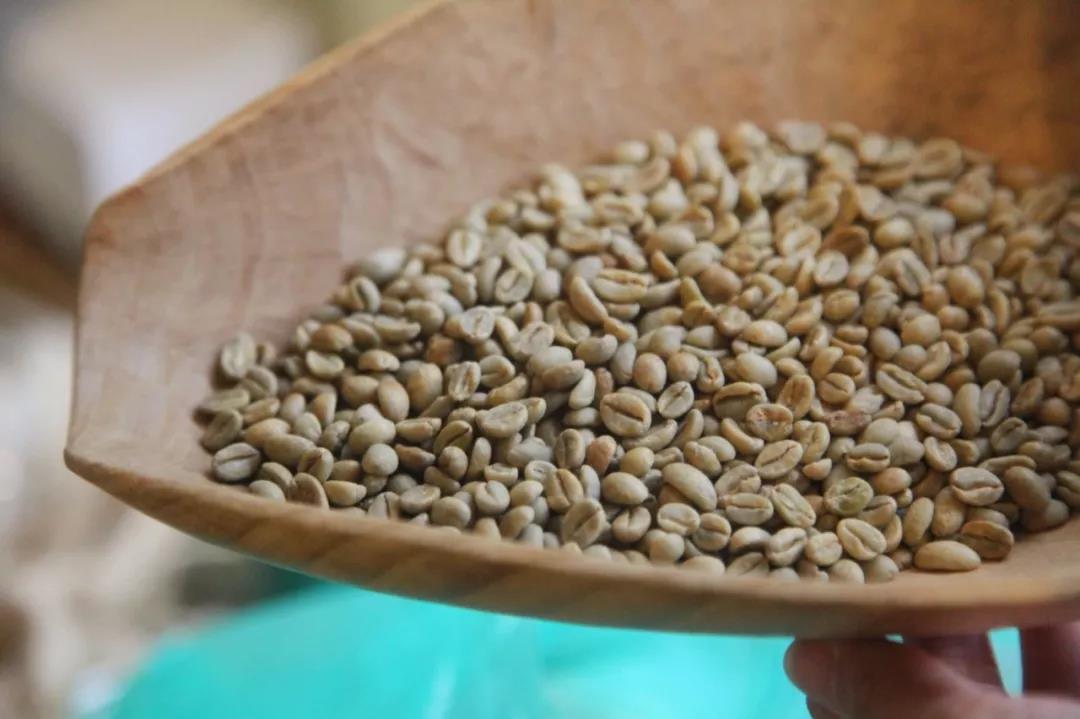Roasted coffee beans contain carcinogens is a rumor? Is it legal to have acrylamide in roasted coffee?

Professional coffee knowledge exchange more coffee bean information please follow the coffee workshop (Wechat official account cafe_style)
A foreign news report that Starbucks coffee contains "acrylamide" may cause cancer has become an uproar on the Internet. As early as 2014, the State Food and Drug Administration issued a risk warning on the detection of acrylamide in French fries. So is it suspected of breaking the law if the food production and operation is found to contain acrylamide in a spot check by the food regulatory authorities?
The author tries to discuss whether the acrylamide formed by food producers in the production of coffee or other food is administratively illegal from the point of view of the relevant provisions of the Food Safety Law and related standards and the Law on the Protection of consumers' Rights and interests. If administrative violations are involved, administrative penalties should be applied.
● I. whether coffee containing acrylamide meets food safety standards
Article 33 of the Food Safety Law stipulates that food production and marketing shall meet food safety standards and corresponding hygiene requirements. In accordance with this regulation, we need to first examine whether there are restrictions or prohibitions on acrylamide in the food safety standards of coffee. In the standard search, we can find that there is no national food safety standard for coffee in our country at present.
Since acrylamide in coffee is mainly found in roasted coffee, we can continue to search for the existence of such food safety standards. Through the search, we can find that although there is no national food safety standard, there is an industry standard for this kind of products, that is, the industry standard of "roasted coffee" (NY/T605-2006) issued by the Ministry of Agriculture in February 2006. The standard was formally implemented on May 1, 2006.
According to the provisions of the former State Food and Drug Administration in January 2016 in response to the AQSIQ's reply on issues related to National Food Safety Standards: "in accordance with the work arrangements of the State Council, the State Health and Family Planning Commission is carrying out the clean-up and integration of food standards. According to the spirit of the coordination meeting of the legal work Committee of the standing Committee of the National people's Congress on December 3, 2015, before the relevant national standards for food safety are issued and implemented, the current quality and safety standards for edible agricultural products, food hygiene standards, food quality standards and relevant food industry standards are still valid, and food production and marketing activities and their supervision and administration shall be carried out in accordance with the current relevant standards. " Based on this regulation, the industry standard of "roasted Coffee" (NY/T605-2006) issued by the Ministry of Agriculture is still valid, and the production and operation activities and appraisal management of roasted coffee should be carried out in accordance with this standard.
By referring to the industry standard "roasted Coffee" (NY/T605-2006), we can find that it does not have any restrictive or prohibitive provisions on the content of acrylamide in this kind of coffee. Based on this situation, we have to consult other relevant health standards and so on. Around the concept of acrylamide itself, we can find a formal national food safety standard "Food Safety National Standard determination of acrylamide in Food" (GB5009.204-2014). However, by consulting the standard, we can see that the national standard only stipulates the method for the determination of acrylamide in food, but makes any provision for its limit in food.
So far, we can conclude that there is no legal basis for directly determining that the presence of acrylamide in coffee (especially roasted coffee) belongs to the violation of food safety standards by coffee producers and operators.
● II. The necessity of marking the possibility of carcinogenesis from the point of view of labeling rules and consumers' right to know.
For prepackaged food, determining whether such coffee products should be labeled with the carcinogenic possibility of acrylamide should be based on the national standard of prepackaged food, namely, the National Standard for Food Safety General principles for labelling of prepackaged Food (GB7718-2011). The standard does not require producers and operators to make special hints in the label on the pathogenic risk of an ingredient in food.
Nevertheless, we still need to return to the perspective of basic consumer protection and re-examine the legitimacy of this behavior. Article 8, paragraph 1, of the Consumer Rights Protection Law on consumers' right to know stipulates: "consumers have the right to know the truth about the goods or services they buy or use." Judging from the basic provisions of this article, it is necessary to mark the carcinogenic possibility of acrylamide. However, the second paragraph of this article also stipulates: "consumers have the right to provide the price, origin, producer, use, performance, specification, grade, main ingredients, date of production, term of validity, inspection certificate, instructions for use, after-sales service, or the content, specification, cost and other relevant information of the commodity according to the different circumstances of the commodity or service."
The second paragraph of Article 8 of the Elimination Law actually limits the scope of consumers' right to know. Even if there is such a restriction, from the point of view of the use and performance of the commodity, the author believes that acrylamide is not a food ingredient added in production. Consumers are not aware of the inclusion of this substance in food. This situation is potentially more harmful to consumers. When the legislation and related standards are not clear but the harmfulness of acrylamide is clear, both coffee products and other products containing acrylamide should be made clear to consumers about the presence of the substance in their products. Although there is no exact standard basis for carcinogenic content, the lack of standard basis can only serve as a reason for food producers and operators to exempt the content of the substance and the possibility of causing cancer, and cannot be used as an excuse to hide the dangerous substance from consumers.
From the point of view of strengthening the supervision of food safety, putting forward this requirement for food producers and operators can be more beneficial for food producers and operators to pay more attention to the harmful substances naturally formed in the process of production. urge operators to reduce or eliminate the content of harmful substances in food as much as possible.
● III. Application of administrative penalties without acrylamide content.
From the practical point of view of the application of the law, the Food Safety Law does not make direct mandatory provisions on the labeling of the potential harmfulness of some substances. However, if there are other violations of laws and regulations, according to Article 67 of the Food Safety Law, other legal provisions can also be used as the legal basis for regulating food labelling. For example, in foods with food raw materials as ingredients, if there is a restricted population, the restricted population should be clearly indicated in the food label according to the approval documents announced by the health department, otherwise the labelling is illegal.
For the above reasons, food producers and operators violate the relevant provisions of the Consumer Rights and interests Protection Law, and the provisions involve the labeling of food labels, and the food regulatory authorities may impose administrative penalties in accordance with the provisions of Article 125 of the Food Safety Law. Of course, market regulatory departments can also implement administrative penalties in accordance with the relevant provisions of the Consumer Rights and interests Protection Law. In the practice of law enforcement, it should be noted that according to the provisions of Article 24 of the Administrative punishment Law: "for the same illegal act of the parties, the administrative penalty of fines shall not be imposed more than twice." With the promotion of the reform of government departments, this law enforcement work will be uniformly responsible for the merged market regulatory departments, which can obviously better reduce or eliminate the risk of illegal punishment.
● roasted coffee beans brand recommendation
The freshly roasted Arabica beans of Qianjie Coffee are fully guaranteed in terms of brand and quality. And more importantly, the performance-to-price ratio is extremely high, each pack of 227 grams, the price is only 70-90 yuan or so. According to the calculation of 15 grams of coffee beans per cup of coffee, a bag of coffee can make 15 cups of coffee, which costs only about 5 or 6 yuan per cup, which is recommended by conscience compared to the price sold in cafes for dozens of yuan a cup.
Qianjie coffee: Guangzhou bakery, the store is small but a variety of beans, you can find a variety of unknown beans, but also provide online store services. Https://shop104210103.taobao.com
Important Notice :
前街咖啡 FrontStreet Coffee has moved to new addredd:
FrontStreet Coffee Address: 315,Donghua East Road,GuangZhou
Tel:020 38364473
- Prev

Roasted coffee classification _ roasted coffee beans need to put anything? how about roasted coffee beans
Professional coffee knowledge exchange more coffee bean information Please pay attention to the coffee workshop (Wechat official account cafe_style) raw coffee beans basically can not smell, roasted coffee can emit a unique flavor. After roasting in different degrees, different raw coffee beans produce different types and quantities of flavor substances. The roasting of coffee determines the number of raw coffee beans.
- Next

Qianjie teaches you how to make coffee. Learn what fresh coffee beans are from raw coffee beans.
In the previous articles, the editor of the coffee series introduced you to some things about hand-brewed coffee. today, the editor does not teach you how to make coffee, but starts from coffee raw beans to talk about the importance of fresh coffee. The freshness here actually contains multiple definitions. Why is there multiple definitions of fresh coffee? In the past, when we talked about whether the coffee was fresh or not, we usually meant how long it was roasted.
Related
- Beginners will see the "Coffee pull flower" guide!
- What is the difference between ice blog purified milk and ordinary milk coffee?
- Why is the Philippines the largest producer of crops in Liberia?
- For coffee extraction, should the fine powder be retained?
- How does extracted espresso fill pressed powder? How much strength does it take to press the powder?
- How to make jasmine cold extract coffee? Is the jasmine + latte good?
- Will this little toy really make the coffee taste better? How does Lily Drip affect coffee extraction?
- Will the action of slapping the filter cup also affect coffee extraction?
- What's the difference between powder-to-water ratio and powder-to-liquid ratio?
- What is the Ethiopian local species? What does it have to do with Heirloom native species?

